AGRICULTURE & AGRI-TECH
Brunei's Future In Smart Agriculture
Smart farming is revolutionising agriculture globally, and automation to tackle food security, optimise resources and enhance climate resilience. This transformation is reshaping traditional methods into precision-driven systems that maximise productivity and sustainability.
As the global adoption of smart farming gains momentum, leading economies set the benchmark for innovation and operational efficiency. Brunei Darussalam is aligning with this agritech trend, positioning smart farming as a central pillar in the evolution of its agricultural sector.
Here we highlight some of the cutting-edge technology and creative solutions deployed by local businesses in the agriculture industry.
Drones for Precision Agriculture
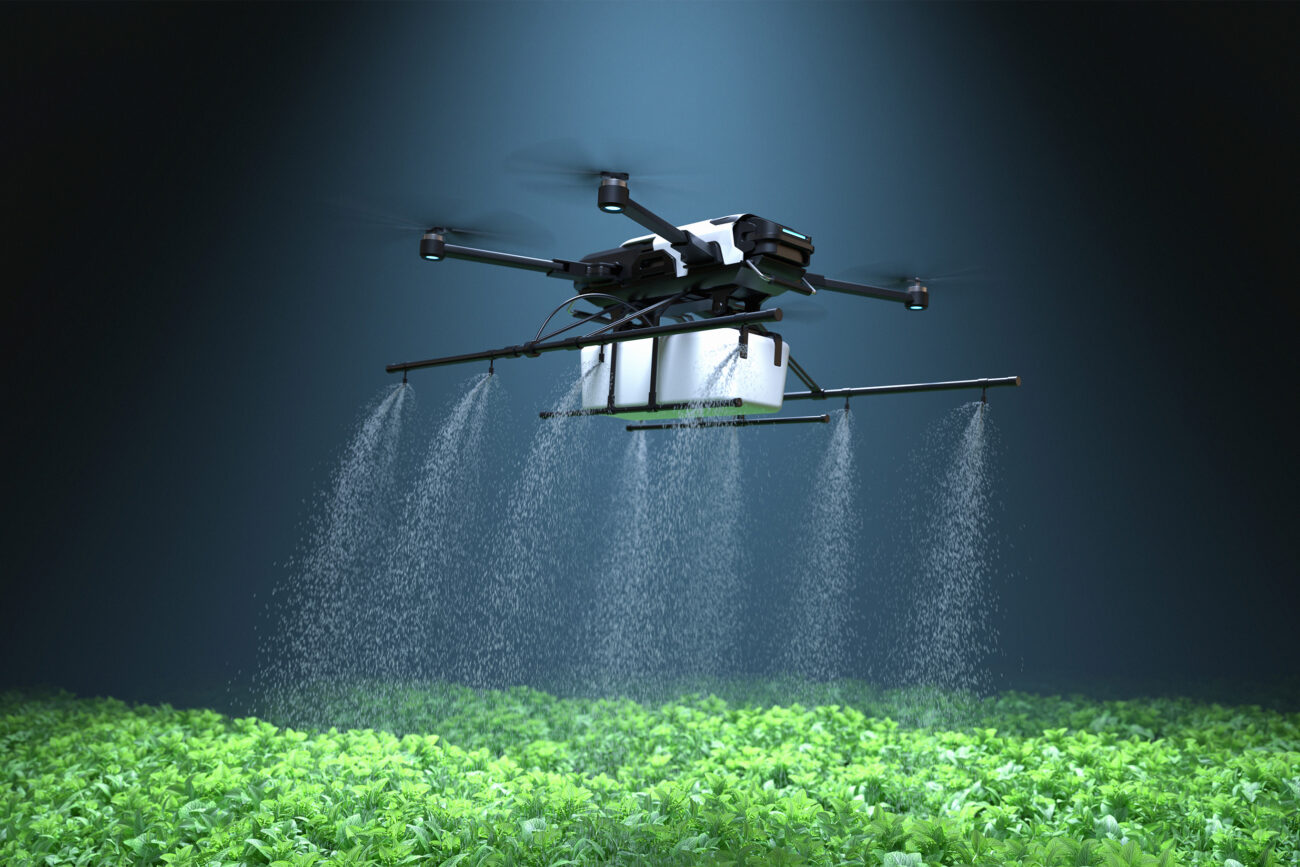
Agriculture drones are quickly becoming an indispensable tool in modern farming for crop health monitoring, spraying agrochemicals and surveying. For local farmers, this enables precision agriculture, enhancing productivity and sustainability. With drones, farmers can monitor their crops by employing multispectral sensor to gather data. By processing this data through metrics such as the Normalised Difference Vegetation Index (NDVI), farmers are provided with precise insights into crop health, ranging from growth progress to identifying stress factors such as water shortages or pest issues.
These insights facilitate more efficient irrigation, targeted pesticide use, and accurate yield predictions, ultimately improving crop resilience while lowering operational costs.
Drone Spraying technology also allows for the precise application of pesticides, herbicides, and fertilisers using drones equipped with 30-litre spray tanks. This method minimises chemical waste, reduces environmental impact, and ensures that crops receive the necessary treatments without harming the surrounding ecosystem.
Meanwhile, LiDAR Mapping technology generates high-resolution, 3D terrain models that support the design of efficient irrigation systems, vegetation analysis, and soil erosion control — all of which are key factors in boosting long- term land productivity.
Advanced Technology For Sustainable High Yield Farming
At the forefront of sustainable agriculture in Brunei is the usage of artificial intelligence (AI) and IoT technologies to enhance farming efficiency. By leveraging AI and IoT, farmers can deliver the optimal conditions for growth, resulting in improved crop yields and streamlined operations. This is particularly important for crops that require precise environment condition such as Japanese muskmelons. A number of local farmers have found success growing this premium fruit with the help of AI and IoT technology.
Also central to farm operations is the NIDO IoT solution, a platform that enables remote monitoring and real- time adjustments through cloud-based AI analytics to manage irrigation and fertilisation. Complementing this system is an app which enables real-time control of the greenhouse environment, ensuring tailored care for each crop.
The AUTOPOT hydroponic system further enhances sustainability by providing plant-driven irrigation using gravity alone, reducing water waste and eliminating pollution. Combined with eco-friendly practices such as carbon sequestration, farmers can minimise synthetic inputs and promote biodiversity.
These technologies serve as a proof of concept for how technology can address global food security and climate change challenges, while paving the way for sustainable agriculture in the country.
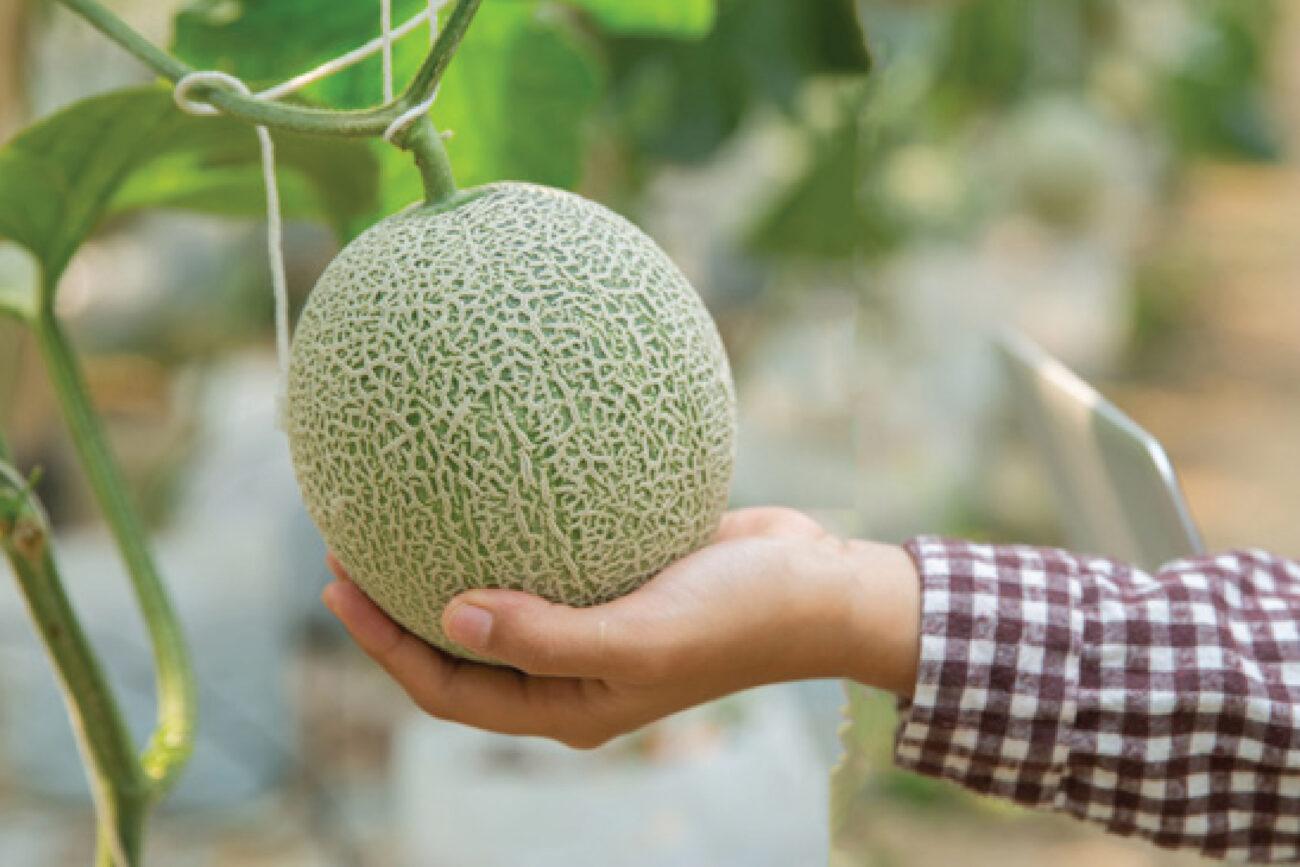
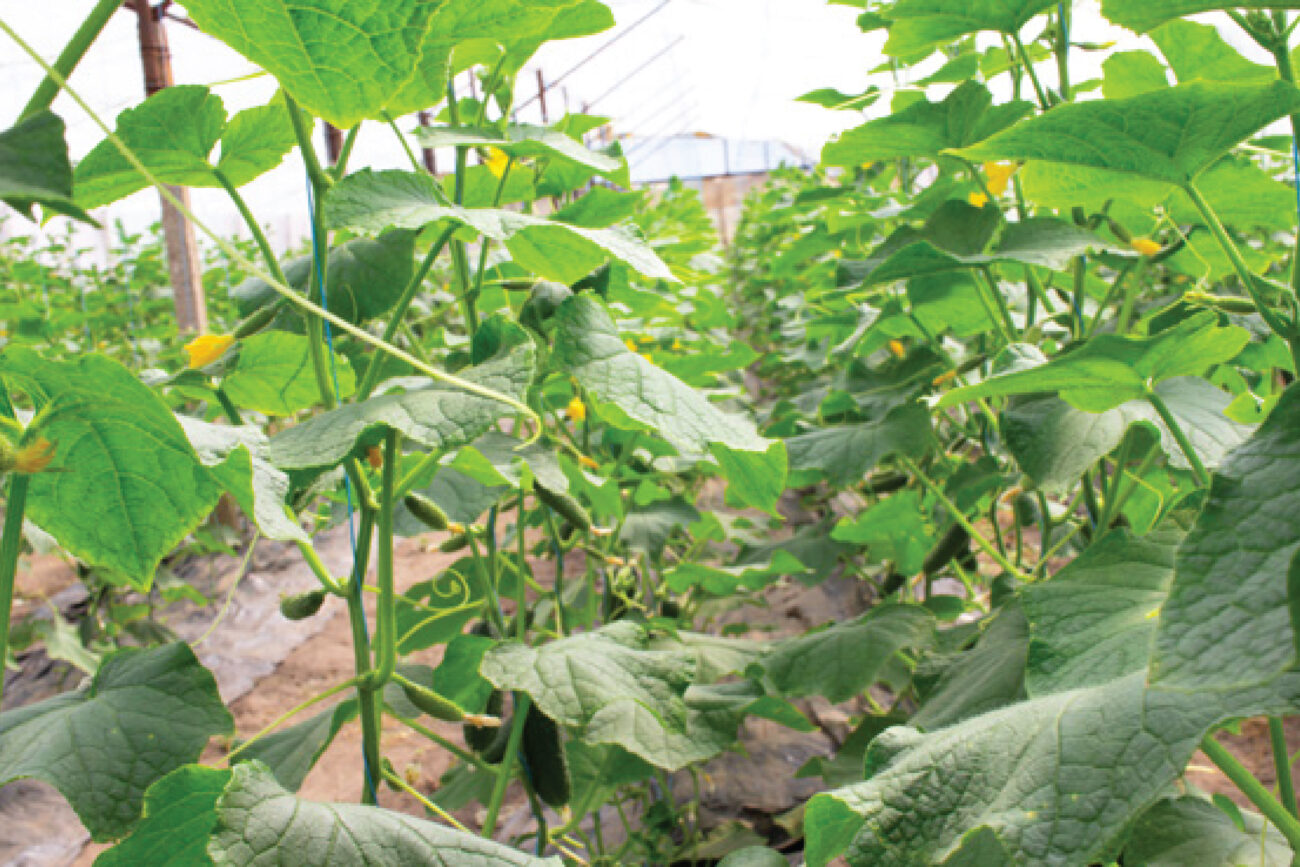
Controlled-Enviroment Agriulture
The global pandemic highlighted vulnerabilities in international supply chains and underscored the urgent need for local, sustainable farming practices. In response to this challenge, synthetic weather technology replicates the ideal conditions for various crops by controlling the temperature, humidity and CO2 levels.
In the modern farming landscape, the use of synthetic weather technology has become a critical tool in crop management. Coupled with LED lighting as a substitute for sunlight, this technology ensures that crops growunder optimal conditions, leading to higher quality and yield.
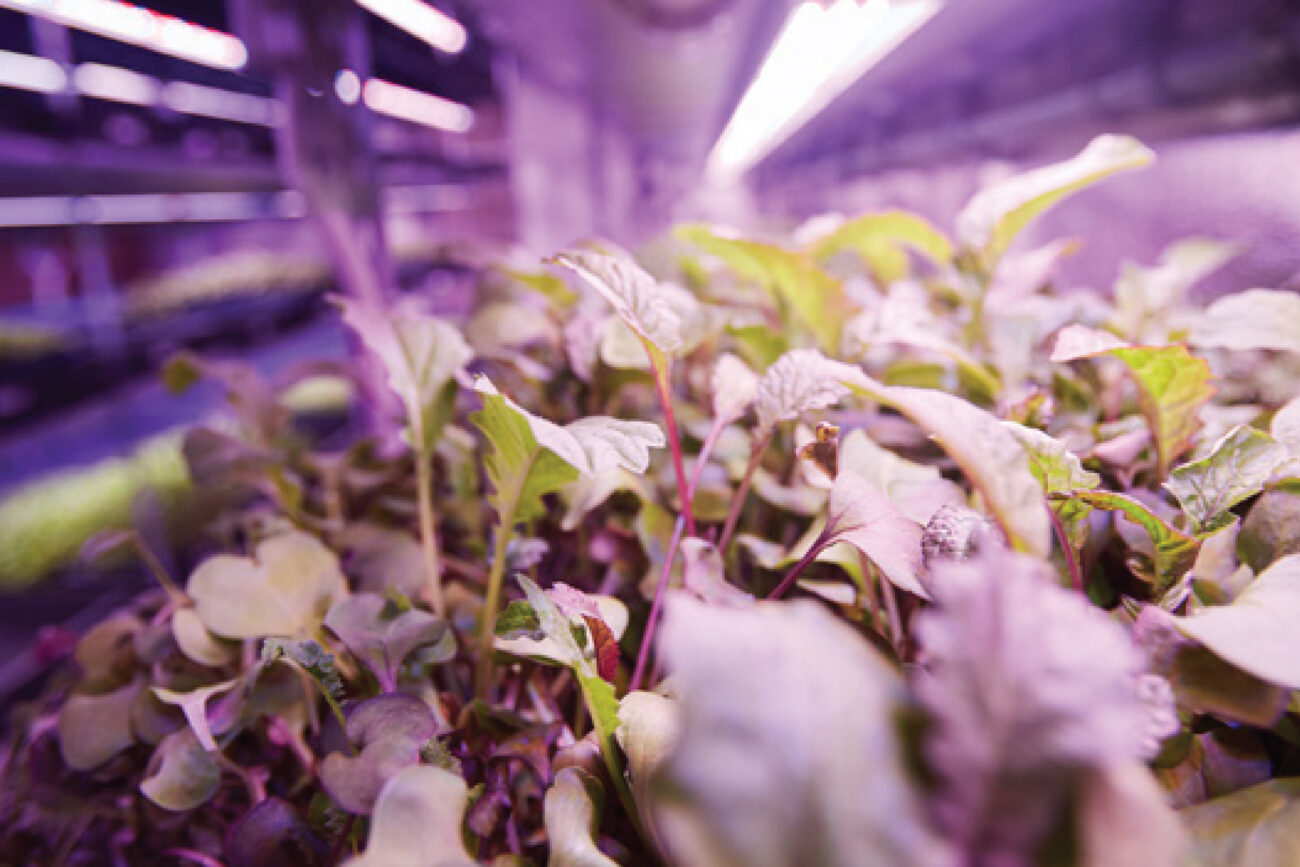
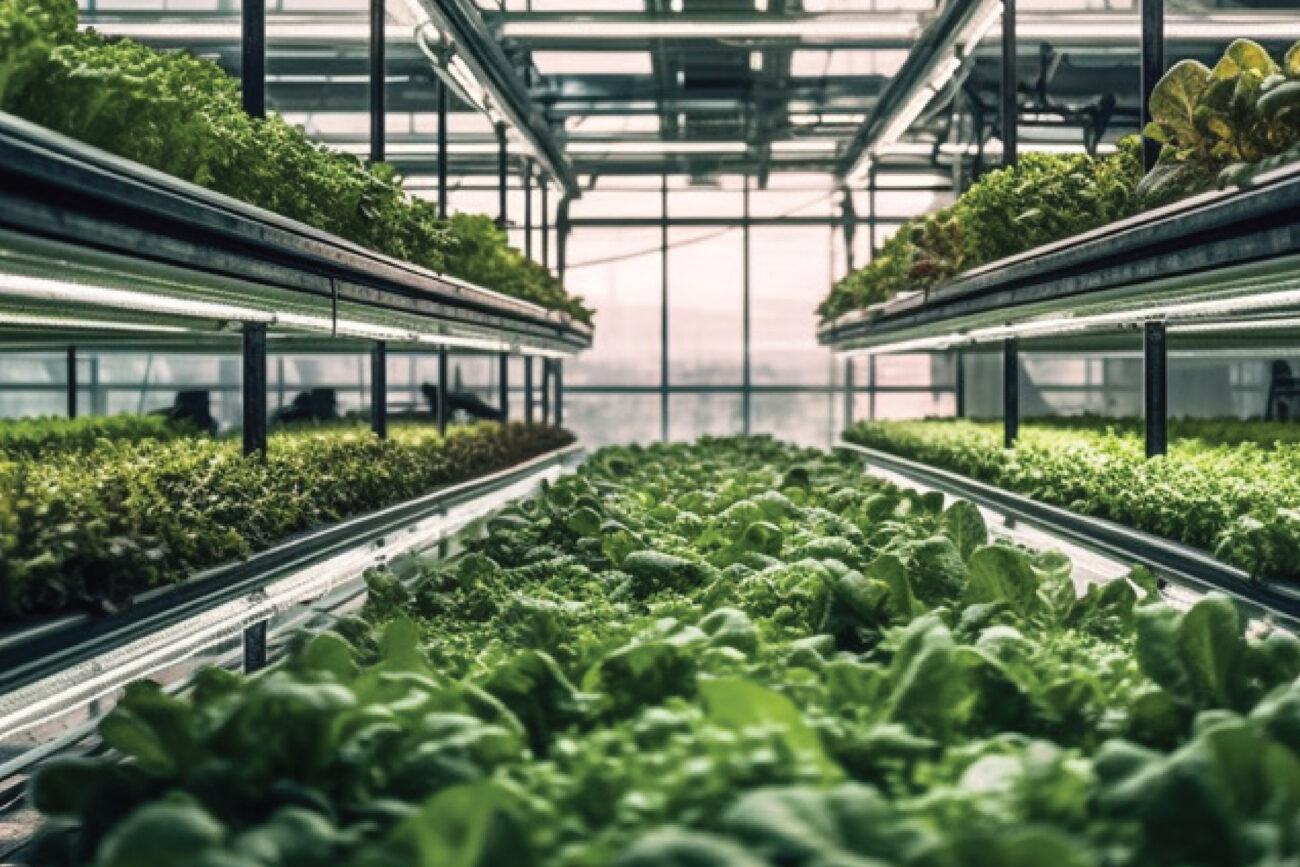

The incorporation of IoT sensors further enhances the vertical farming approach, an agricultural process in which crops are grown in stacked layers indoors. Unlike its conventional counterpart, vertical farming is unaffected by adverse weather conditions and enables year- round production.
By monitoring crops in real time and having a controlled environment, farmers gain valuable data that help them adjust environmental settings and continually refine their processes for improved results. This helps maximise yield and ensures that the crops thrive under controlled conditions.
Promising Growth Ahead
Thanks to advancements in technology, farmers now have access to a wealth of information that can transform the way they tend to their crops and and mitigate risk. These technologies collectively highlight Brunei’s potential to lead in urban farming and smart agriculture. By leveraging local talent alongside cutting- edge technology, they address the unique challenges within the country’s agricultural sector while also setting a benchmark for regional innovation.
Their focus on precision agriculture strengthens food security, enhances economic resilience, and supports sustainability. Brunei’s role as a leader in smart farming and sustainable development continues to solidify as these advancements gain recognition across industries.
